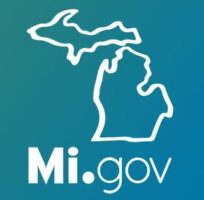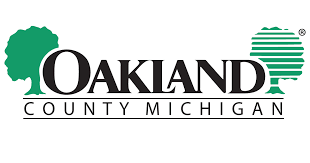April 28, 2020
Oakland County Executive Biweekly Newsletter
Dear friends,
It has been seven weeks since our first resident tested positive for COVID-19. It is hard to fathom we have lost more than 600 of our residents to this terrible pandemic and over 6,500 have tested positive. Thankfully many are now recovered and the increase in cases and fatalities is slowing.
The Stay at Home order is working, and I want to thank you again for your patience in doing what is necessary to keep our communities safe. It is difficult and I understand that this pandemic is having an impact on both our health and economic well-being. Over 119,000 residents have filed for unemployment insurance benefits to get through the economic downturn.
As we begin to plan for a phased re-opening of our economy, we are focused on increased testing and growing our team of virus case investigators at our health division so we can monitor and trace the virus until there is a vaccine. We are also enhancing support for small businesses and community organizations that are both vital parts of the fabric of our county.
I hope you will take a few minutes to complete our COVID-19 Citizen survey.
I look forward to hearing your thoughts and suggestions.
Sincerely,

David Coulter
Oakland County Executive

Drive-Thru COVID-19 Testing
Health Division and Honor Community Health Start Daily Drive-Thru COVID-19 Testing at Oakland County Complex
The Oakland County Health Division and partner Honor Community Health offer drive-thru COVID-19 testing at the Oakland County Complex in Pontiac and South Oakland Health Center in Southfield. Testing is free and available to all residents. Appointments can be made through the Health Division’s Nurse on Call hotline at
1-800-848-5533. Tests are for anyone with symptoms and asymptomatic first responders, essential or critical infrastructure employees. Test results are expected in 24-48 hours. Testing is also available at the State Fairgrounds site on Woodward Avenue in Detroit. A doctor’s note is required for testing at this site. The county is planning to expand testing sites so please look for updates on our website.
Small Businesses Impacted by COVID-19 Get a Boost from Oakland County Stabilization Fund
Oakland County small businesses hit hard by the coronavirus pandemic will share $2.3 million in grants from the county’s small business stabilization fund. Over 700 businesses received funding during this first round. County Executive David Coulter has already proposed an additional round of funding.
“This fund was created in the early stages of this crisis when we knew small businesses would need immediate financial help to stabilize,” Coulter said. “They are the life blood of our economy and we wanted to get these grants into their hands as quickly as possible.”
The stabilization fund is comprised of a $1.15 million grant from the Michigan Economic Development Corp. and a matching grant of $1.15 million from the Oakland County Board of Commissioners. The board also appropriated an additional $700,000 for the “Saving Business, Saving Lives’ grants for companies able to pivot from normal productions to manufacture personal protective equipment for health care workers and first responders.
More than 7,000 small businesses applied for grants, which would provide an immediate infusion of capital to support payroll expenses, rent, mortgage payments, utility expenses or other similar expenses that occur in the ordinary course of business. Applications were sorted by 12 geographic districts and evaluated by a team of local economic leaders from each district. The maximum award was $10,000 although the average grant ranged from about $2,500 to $5,359, depending on the district.
Two Oakland County Manufacturers Receive Grants to Make Gear for Health Care and First Responders
An Oxford-based manufacturer of ice hockey equipment and a Pontiac company specializing in knitwear were awarded “Saving Business, Saving Lives” grants to make desperately needed personal protective equipment used in the fight against the coronavirus.
The grants, awarded to Vaughn Custom Sports and Detroit Sewn, were announced this week by Oakland County Executive David Coulter. They are the first two companies to receive grants from a $700,000 fund proposed by Coulter and approved by the county Board of Commissioners to incentivize Oakland County manufacturers who can shift production to personal protective equipment such as masks, gowns and face shields.
Vaughn Custom Sports, owned by Michael and Arlene Vaughn, manufactures protective equipment such as catch gloves, blockers, leg pads, pants, chest protectors, and sticks used by professional and amateur goalies throughout the world. They were awarded $50,000 to produce several thousand high-quality protective gowns and caps a week. The grant allows Vaughn to bring back employees and dramatically increase production.
Detroit Sewn, owned by Karen Buscemi, was awarded $25,000. It began operations in downtown Pontiac in 2015. The company specializes in knitwear such as T-shirts, bags, and other clothing items and is shifting production to making cotton fabric medical face masks for health care systems and first responders across the metro area. The grant will allow Detroit Sewn to invest in equipment and hire employees resulting in a significant increase in production.
Coulter Forms COVID-19 Economic Recovery Task Force
Oakland County Executive David Coulter announced the leadership team for his COVID-19 Economic Recovery Task Force to help advise on strategies to help stabilize the county’s economy and recover from the downturn caused by the pandemic.
The task force will provide recommendations to Coulter, the Board of Commissioners and the Department of Economic Development & Community Affairs as the county plans for the economic re-opening from the pandemic.
“We are in the middle of the health crisis, but we still need to take steps to stabilize our small businesses and non-profit organizations that represent the fabric of the county. Oakland County is the engine of the state’s economy, and we will take every step necessary to ensure that our companies and community organizations are in a position to lead again.”
The task force will be led by co-chairs:
- Alan Kiriluk, founder and chairman of KIRCO, a Troy-based real estate development, construction and property management company
- Pete Provenzano, chancellor of Oakland Community College
- Shannon Striebich, president of St. Joseph Mercy Oakland Hospital
- Barbara Whittaker, a procurement and supply chain expert and president of BW Limited
The remaining task force members are:
- Chris Barnett, Orion Township supervisor
- Deb Brinson, Honor Community Health CEO
- Wanda Cook-Robinson, Oakland Schools superintendent
- Patty Corkery, Michigan Credit Union League general counsel
- Eric Dietz, Huntington National Bank regional president
- Darienne Driver, United Way of South East Michigan president/CEO
- Mike Fournier, City of Royal Oak mayor
- Mike Gingell, Oakland County Board of Commissioners member
- Gerald Lang, UAW Local 5960, Vice President
- Tom Kelly, Automation Alley executive director/CEO
- Frank Rewold, Frank Rewold & Sons president/CEO
- Bill Roberts, Roberts Restaurant Group proprietor
- Robert Skandalaris, Quantum Ventures chairman/CEO
- Rachel Tronstein, Gardner White president
- David Woodward, Oakland County Board of Commissioners chairman
- Christian Wuerth, Village of Milford manager
- Patricia Yulkowski, Total Door CEO
- Mike Sarafa, Vision Growth Partners, managing partner
The full task force includes representatives from education, foundations, local government, construction, restaurants, labor, health care, and business. The task force will focus on stabilization and recovery. As businesses begin to re-open, the task force will help identify strategies to assist in the recovery and help accelerate and sustain the rebound from the economic slowdown.
Citizen Survey
Please take a few minutes to share your views on how the pandemic is impacting you, your family and express your opinion on the next phase of our pandemic response in an advance of a further re-opening of our economy.

Updated COVID-19 Information
Oakland County Executive David Coulter wants you and your family to have the most current information about COVID-19 and how to stay safe.
Please go to OakGov.com/COVID for current information about the disease, ways to protect you and your family, and to find a host of timely and useful resources.
- If you have immediate health-related questions, please call Nurse on Call at 1-800-848-5533 or email [email protected]
- For non-health questions or requests, contact the Oakland County Help Hotline at (248) 858-1000 or [email protected]
- If you would like to receive text message alerts with current COVID-19 information, text OAKGOV COVID to 468311
Oakland County is committed to keeping you safe and informed.


|










